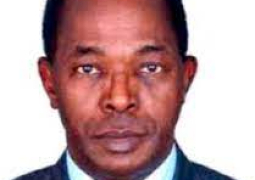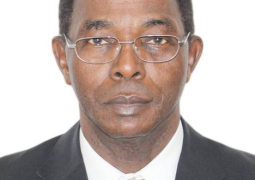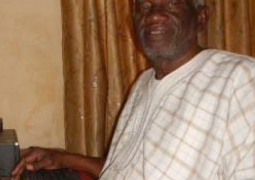The press in the Gambia has endeavored throughout the years to persistently continue to play the role of a watchdog and also the creator of directions for the common good. The press in the Gambia greatly contributed over the years towards sharpening of peoples’ awareness towards national issues by providing the citizens with factual information. This role of the press as a medium of mass education is a necessary criteria for a balanced democracy.
The draconian laws which still exists in the law books of The Gambia designed to intimidate and inhibit journalists, were legislated during the twenty two years of dictator Yahya Jammeh’s regime. The application of these suppressive laws brought about the arrest, detention and brutal murder of journalists. During the notorious Jammeh regime, when Gambians experienced the most traumatic periods of their lives, the threat to eliminate the freedom of the press became the major occupation of the NIA (National Intelligence Agency)
The relentless hunt for the practitioners of the fourth Estate, created an atmosphere of fear and distrust, as a result, the press became the worst enemy of Dictator Yahya Jammeh.
Against this background, the need to abrogate the existing repressive laws need not be overemphasized. The press should therefore be given the opportunity to regain the freedom of expression necessary to promote democracy that we all aspire to sustain peace and development as advocated by President Barrow.
OPINION
The state of the nation
At the core of GAMBIA HAS DECIDED in the political transition in 2016 was the drive for system change, patriotism and nationalism which would usher in a New Gambia. The roadmap in the transition was to ensure that the administration of New Gambia brings happiness, peace, progress, and prosperity to the people and to the overall development of the country.
The question before us now is: after five years into governance, what is the state of the nation? First of all, politically speaking, the government must be credited for democratic governance. It must be further stated that apart from the Banjul Streets Project, the development agenda has been mainly focused on upcountry and in Upper River Region (URR) in particular. The rest of KMC and West Coast Region continue to depend on the promises of OIC projects and on state announcements of energy, ports and other infrastructure projects.
It is to be noted that many sectors of the economy and the administration have failed to achieve their desired results, such as the lack of a security sector reform and civil service reform, fisheries sector reform to serve the national interest, implementation of the anti-corruption commission, food security and the proper nutrition of the country. The cost of living is unacceptably high and most homes find it difficult to have two meals per day.
Despite all the donor interventions, the economic environment is too tough for most Gambians. The political change has failed to uplift the status of Gambians from depression to appreciation, from poverty to prosperity and from marginalization to inclusive development overall. The leadership of the country seems to have the heart and the commitment to deliver the goods for a better Gambia but the administration has been handicapped by lack of capacity, lack of technocratic competence, lack of professionalism, and bureaucratic procrastinations.This will happen in a situation where the wrong people hold power in the system and have a tendency to put self before country.
In the absence of public accountability, the country will continue to face unending flaws in the governance environment. What is the point of officials writing nice speeches for the President if they do not augur well with the realities on the ground and the economic outlook of the country? In his last Independence Day speech, the President was quoted saying “My administration will continue to defend the sovereignty of the country and to protect the freedoms and liberties of the people,” yet, the ECOMIG is here with us as if the country is in a state of crisis. Our fisheries resources are mainly in the hands of foreign countries. The withdrawal of the country’s candidature for an AU position, the award of state contracts to foreign companies as opposed to capable local entities, the high cost of mobile internet data, the exponential increase of home rental prices without proper regulation,and the domination of the business environment by foreigners at the expense of the indigenization of the economy, among others, do not favor the national interest in the view of many Gambians.
The Justice Ministry continues to claim that the CRC Draft 2020 Constitution is not dead, but is it alive as a national legal document for governance? The locally travelling public is facing unending and unnecessary hard times on the roads due to numerous check points day and night across the country as if the government is scared that JAMMEH is coming back tomorrow.
The environment gives the impression of a constant state of panic. The civil service and provincial administration in particular has been heavily politicized. The same goes for the Foreign Service and in other public administrations. The nation is in a state of democratic fragility. The political atmosphere is getting polluted as we approach December 4th 2021. This is a nation going into the elections UNDECIDED about which constitution will prevail in the governance architecture.
An important point of reflection is that despite the significant contributions of the diaspora to the socioeconomic development of The Gambia, the political will on the part of government does not seem to involve them in the forthcoming elections. The state of the nation must be reviewed by government.
By: D.M. Badjie
Political Scientist/Analyst





